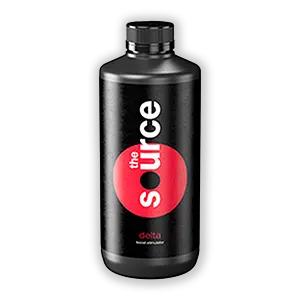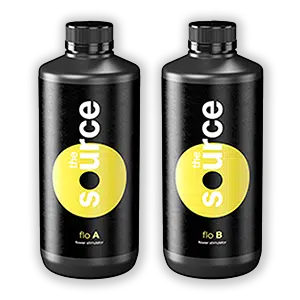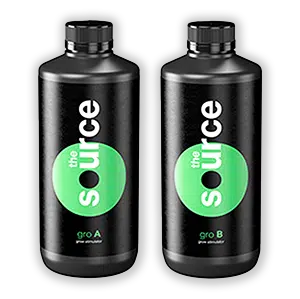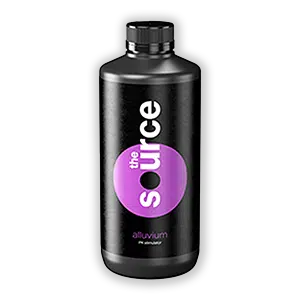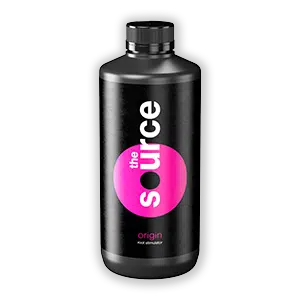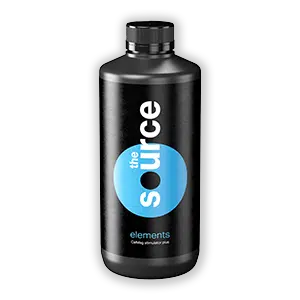Short Term Flowering plants – for AutoPot Users – Soil/Compost
Select your Feed Chart
All feed charts open in a new tab.
Advanced Guidance
The Source fertiliser range and bio stimulants have been trialled and tested for several years in conjunction with AutoPot and at some of the UK’s leading horticultural universities. AutoPot highly recommends the use of the complete Source fertiliser range. If using the Source Range it is not advisable to use any other additives as they may cause an imbalance and affect the growth of your plants. The feeding schedules provided for a large range of plants have been devised and composed to work in harmony with ALL AutoPot watering systems.
The Source fertiliser range also works extremely well as a feeding schedule for all other methods of automatic irrigation systems.
When adding the Source fertiliser range always add the A & B formulations first, GROW or FLO, this will then provide you with the NPK value within the water.
The Source fertiliser range can be used with SOIL / COCO / HYDRO.
The Source fertiliser range is also suitable for HARD and SOFT water.
Always add equal amounts of A & B to the volume of water so that you reach your targeted EC level. Then add the Bio stimulants, as shown in the feed chart.
Note that the EC will increase BUT do not be concerned as this is how the Source fertiliser range is designed to function.
For example -If you set your EC with GROW or FLO A & B to 1.5 and then add the additional Bio Stimulants the EC will rise by 4-7 points to 1.9 – 2.2
AutoPot Watering Systems store available fertiliser in the media/substrate/soil/coco for longer periods of time compared to all other watering systems as there is no run-off, so by providing only water during the 2 WEEK WATER ONLY period, you are not only saving on unnecessary use of fertiliser you are also allowing the plants to use the stored fertiliser in the pot, which will become depleted during WATER ONLY period.
Ideally use a pH pen and EC/CF/PPM Truncheon, this will ensure that the pH & Ec levels in your reservoir are correct depending on the stage of growth that your plants are in.
We highly recommend the use of the below equipment
A pH pen will measure how acidic or alkaline your solution/water is, plain water will indicate a given pH but when adding the source fertiliser range, depending on the quantity added the pH of the solution will be reduced making it more acidic.
An EC/CF/PPM truncheon/pen measures how much salts or fertiliser are present in the solution/water. Plain tap water will provide a low EC/CF/PPM reading. When you begin to add the Source fertiliser range the levels will increase.
Note : if using a pH pen and EC/CF/PPM truncheon/pen they MUST be calibrated regularly.
EC levels of the water within your reservoir when plants are young should always be set low, ideally 1.0-1.4 EC, if the starting EC of your plain water is around 0.6-0.8 EC. As the plants grow the EC levels can be increased to 1.7-2.4 EC. The feed charts are designed to provide these levels of fertiliser during the vegetative/flowering/fruiting stage
If growing in soil/compost set the pH in your reservoir to approximately 5.8.
If growing in coco or rockwool set the pH in your reservoir to approximately 5.6.
Note the required pH in your AutoPot tray should ideally be pH 6.0-6.5 with 6.3 being ideal.
Simply take a water sample from the tray with a syringe from time to time to test the water and adjust the pH in the reservoir as necessary. Root activity will change the pH in the growing media as the plant grows and flowers. Root activity is generally more noticeable in the early stage of plant growth and will slow down during the flowering/fruiting stages.
Please note that the environmental control of your greenhouse or growing area is the most important aspect of successful growing. If temperature / humidity are not correct during the various stages of plant growth plants will not thrive.
Note there are no artificial / manufactured PGR’s in any of “The Source” fertiliser range.
Due to the way AutoPot functions as an irrigation system, ie bottom fed with no run off, the grower is able to use lower levels of fertiliser as the substrate within the pot stores fertiliser which is made available to the plant.
Plants that require flushing in AutoPot systems should therefore have a longer “flush time” to allow the plants total absorption of the stored fertiliser left in the growing media once the feeding schedule has been stopped. Please note that flushing a plant for a period of time DOES NOT remove the NPK and trace elements from the plant, as they have already been absorbed during the feeding schedules. In simplistic terms you are simply attempting to cleanse the plant during the WATER ONLY PERIOD.
PLAIN WATER is added to the reservoir during the “water only” period and pH stabilised depending on the media you are growing in. It is NOT necessary or sensible to pour plain water through each pot. Let the plant/s naturally cleanse themselves by absorbing plain water from the reservoir.
Plain water is only ever poured through a pot if a plant is experiencing over feeding, which results in “lock out” where the fertiliser elements are unavailable to the plant. If this procedure is required, water through heavily around 10ltrs per pot of tepid water, not cold water.
During the WATER ONLY period flowering / fruiting plants will be in their final stages of life before harvest. During this period you may find that your plants are complete before the whole suggested 2 WEEK WATER ONLY period. If this is the case and you are satisfied with the look of the fruit/flowers then the plants can be harvested at any time during the WATER ONLY period. We would advise that a minimum of 14 days of WATER ONLY days are provided to the plants before harvest
Note the feed charts are a guideline only but will provide the grower with an understanding of what is required and when. At the same time providing the plants with an excellent well balanced feeding schedule.
Please feel free to adjust and play with the dosing rates as different plants will always react in different ways. We would suggest that you only trial different feed levels with one or two plants to see the outcome. It is not advisable to deviate too far from the feed charts to begin with until you confident to do so.

